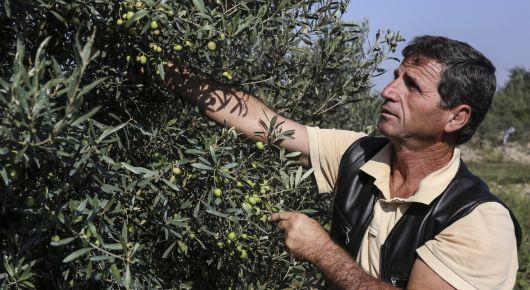Albania works toward better adaptation to climate change

Aided by FAO, multiple events took place in recent weeks in Albania to help the country fight climate change and its consequences. In the past decades, the country has been facing floods and droughts and further weather extremes, as well as invasive marine species.
To address these issues, FAO, in cooperation with the Ministry of Tourism and Environment, raised awareness among farmers, smallholders, the private sector, public institutions, academia, and civil society on climate change matters. Additionally, a series of events took place during September, including training workshops, helping to develop an implementation strategy and action plans for climate adaptation.
At the event series, FAO national and international experts presented adaptation measures and recommendations for a wide range of sectors, including agriculture and crops, forestry, livestock, wetlands and lagoons, pastures and meadows, and fisheries and aquaculture.
"A voluminous work has been done and, for the first time, agriculture, livestock, fisheries, and aquaculture has been introduced as the main sector in a climate adaptation programme,” said Arben Kipi, Assistant FAO Representative, expressing his appreciation for the process and cooperation with line ministries. “There is still a lot to do, and we can tap into the potential of Albania’s rural areas."
Campaigning for more sustainability
To learn more about climate change adaptation measures, the FAO awareness campaign targeted the most affected areas in Albania to introduce farmers and fisher folks to an ecosystem-based approach to natural resource management and agricultural best practices, and strengthen internal processes for sustainable development and resilient communities.
The campaign was part of the Sustainable Development Goals (SDG) Week 2021 Albania which started in the northwestern coastal town of Lezha with participation of the UN Resident Coordinator Fiona McCluney.
“This is a good place to start because it shows that the SDGs goes into action," stressed McCluney, adding that the area is progressing well in realizing one of the SDG targets aiming to conserve 10 percent of the marine resources and ecosystem.
The Director of Regional Administration of Protected Areas in Lezha, Pjeter Toma, pointed out that climate change affects lagoons in Albania, while extreme weather events, such as floods and droughts, have significant impacts on the farmers’ households in the surrounding areas.
Some of the adaptation actions highlighted during the campaign were: reforestation along the coastal shore to prevent seawater flooding and erosion of the bank; maintenance of water communication channels to maintain water flow from the sea and improve water quality and fish stock so that local fishermen will benefit; and development of a soil and water management strategy to increase the productivity of soil and lagoon waters.
Elsewhere, in Durres and Marikaj, fishers and farmers talked about increased water temperature, which makes commercial fish species migrate to deeper waters and force fishers to follow them, and the invasion of foreign species, such as blue crab.
The team also visited the city of Shkodra in the North that was hit by floods (occurring three times in the last decade), as well as prolonged drought during the summer season, to meet vegetable and crop farmers and livestock keepers (mainly cattle).
Experts recommendations include the usage of greenhouses to protect crop and vegetables from hail, modern irrigation systems (rain pipe and drip irrigation), diversification of farm animal species, and mixing livestock farming such as stable-fed system during winter and pasture grazing in spring-autumn.
FAO supports the Government of Albania to enhance the Nationally Determined Contributions (NDC) focusing on the agriculture, forestry, and other land use sectors through the Technical Assistance Fund, on behalf of the NDC Partnership Climate Action Enhancement Package.
13 October 2021, Tirana, Albania
